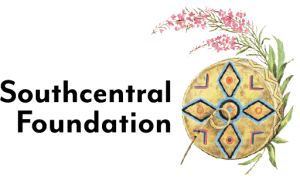Wonderfully Me: Fetal Alcohol Spectrum Disorders Awareness Day
By Lyla Detavernier
Ayla is 17 years old and lives in Ts’estacilaexden (Sutton), Alaska. She is a Tribal citizen of the Nay’dini’aa Na’ Kayax (Chickaloon Native Village) Tribe, and is compassionate, caring, funny, a future rockstar, and passionate about reducing the stigma of living with fetal alcohol spectrum disorders.
Sept. 9 is FASD Awareness Day and Ayla wants to share the message to all people living with FASD, “you can be anything you want to be. We are different, but it is ok to be different.”
FASDs are a group of conditions that occur in a person who was exposed to alcohol before birth. Spectrum disorders affect people differently and no two people may experience the same challenges that accompany an FASD diagnosis. Effects can be lifelong, including behavioral, learning, and physical disorders. However, having a diagnosis is key to connecting children to resources at an early age to help them thrive.
“Having an official diagnosis helped [Ayla] get access to occupational therapy when she was just six months old, which helped her with feeding issues, and later she was able to receive physical and speech therapy and additional school support services,” Ayla’s adopted mom, Lisa, shared. “Ayla’s diagnosis has helped us to educate the teachers at her school about how to teach differently, helped improve her academic performance, and allowed us to better identify what type of support Ayla needed to be successful.”
Along with Ayla’s courage and bravery, she has received support to thrive in school and on stage, but it doesn’t always come easily.
“I have poor memory and sometimes, and I feel like it frustrates people, that’s something I’m working on,” Ayla said. “People who know me really well like my mom, dad, aunts, and friends understand.”
Some tips Ayla shared for supporting someone with FASDs include:
- Be compassionate about someone’s limits.
- Trust their intuition, listen if they share that they need support.
- Teach them ways to go through and understand the world.
- Allow space and time for processing information.
- Allow for tasks to be completed one at a time.
While we celebrate the success of Ayla and others with FASD diagnoses, the challenges that come along with FASD are preventable. We now know that no amount of alcohol is safe during pregnancy, and it is never too late to stop alcohol use.
Southcentral Foundation has programs and services to assist pregnant mothers with substance misuse challenges including SCF Detox, Four Directions Outpatient Treatment Center (Anchorage and Wasilla), and Dena A Coy, a residential treatment program, all which can assist mothers in a safe, trusting environment — no referral necessary.
“We want mothers to know they should ask for help and that it is available to them,” Lisa shared. “Ayla and I talked about how her birth mom maybe didn’t get the help that she needed at the time because of the stigma and fear that came along with asking for it.”
SCF Child and Family Developmental Services is also available to support children with FASDs and other developmental concerns. CFDS includes specialists such as developmental-behavior pediatric providers, speech and language therapists, occupational therapists, physical therapists, board certified behavior analysts, and behavioral health consultants.
A referral is needed to access CFDS. Please contact your family’s provider if you have concerns about your child’s development. You can also download the Centers for Disease Control’s Learn the Signs, Act Early Milestone Tracker App to get an illustrated checklist of milestones and development.



